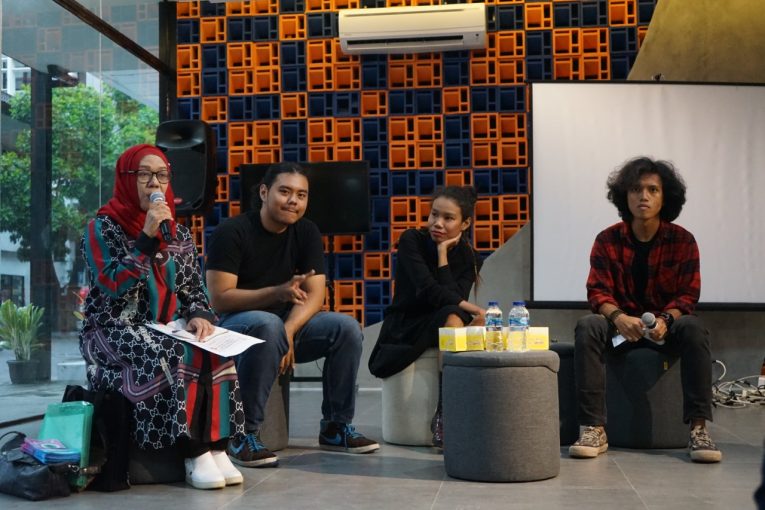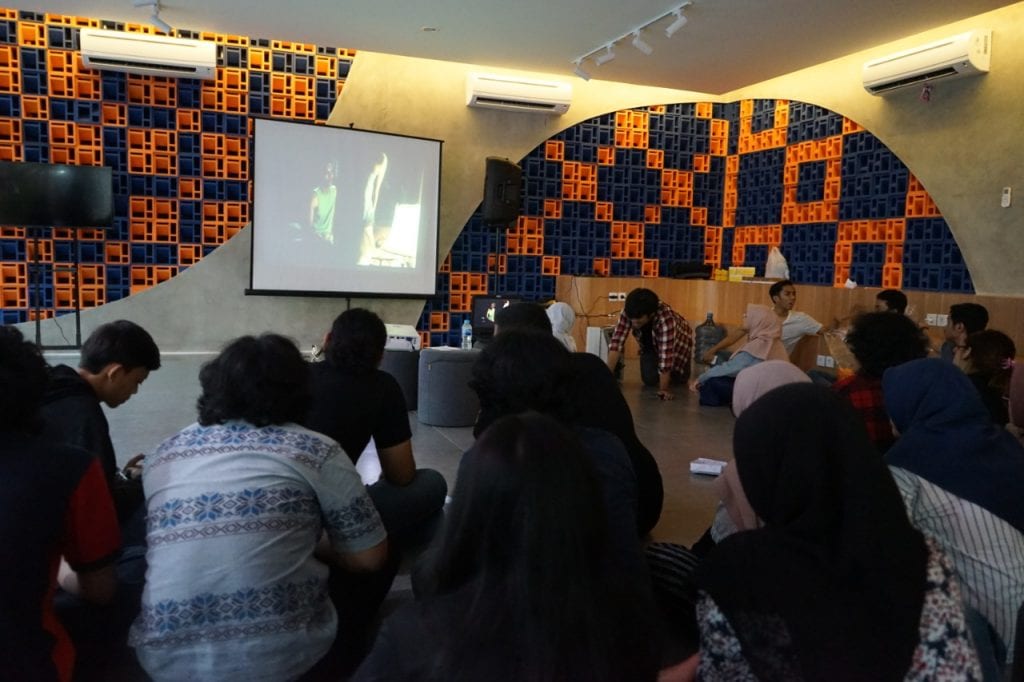
Yogyakarta, March 11th 2020 – Last Wednesday, The Student Board of Gadjah Mada University’s Faculty of Social and Political science held a public discussion. This forum used the “Perempuan Punya Cerita” movie (eng: Women Have Stories) to start a discussion about the problems in Indonesian female life. This movie is a compilation of four short stories – Island Story, Yogyakarta Story, Cibinong Story, and Jakarta Story – which narrates different issues related to women’s life.
Due to a time limitation, the movie screening only showed the Yogyakarta Story segment. The movie screening was then followed by a discussion held in the BRI Work Amphitheatre from 16.00 to 18.00 pm. The speaker in this event were Mrs. Pola Setiahati from Yogyakarta UPT P2TP2A, Mr. Ramadhani Thareq Kemal Pasha from Planned Parenthood, and Ms. Anggun from Women’s March.

Though the event did not start on schedule, the attendant faithfully followed the event until the end. “Though the film was produced in 2006, the lessons in this movie is still very much relevant. For instance, now we are battling stigmas and discrimination, be it in formal or informal education, that sexuality is taboo. Hence, it is very difficult to educate people by mentioning the word ‘penis’ or ‘vagina’. In a family, discussions about sexual health or reproduction is almost non existent. Some family still sees our bodily organ as ‘dirty’ when the one that is ‘dirty’ is our minds and perception of it.’ said Kemal.
The sexual violence now and then is not very different. “Discussions are still polluted by stigmas. Some say that it is better to be assaulted as a wife forever than to be a widow. Women also don’t want to be seen as virgins. The concept of virginity in women makes it seem as if women is merely a human with a vagina and nothing more. Talks about virginity and sexual violence is now out in the open since there is feminism. The solution from now on is not just to rely on social media, but also to have a sex education” Ms. Anggun said.
In reality, women actually have the right to speak up and to do as they please when it comes to sexual violence. However, many women’s life are governed by their husband and therefore their freedom is taken away. These kinds of incidence are also related to stigmas that women should be obedient or else they will be deemed unworthy in society. These kinds of stigmas limit women’s rights.
It takes a long and rigorous fight to upend our current system. If we look at our history, stigmas about women’s role have long been embedded in our society. “This issue has to do with gender. Gender is a social construct that position women differently from men. Gender is something that is closely tied to Indonesia’s patriarchal culture. It really is a challenging problem. Women’s role is not maximal compared to men’s. Changing social paradigm is hard. It also needs the cooperation from all elements of society on how to lift Indonesia’s women to create gender equality.” Mrs Pola explained. The speakers not only talk about sexual violence. They also gave several ideas and solution on how to minimize or prevent the problem of sexual violence. Some of the proposed solution are to eliminates stigmas that stifles women’s emancipation, the creation of laws to prevent sexual violence, and a comprehensive curriculum about sex education.
Translator : Ni Made Diah A.D
